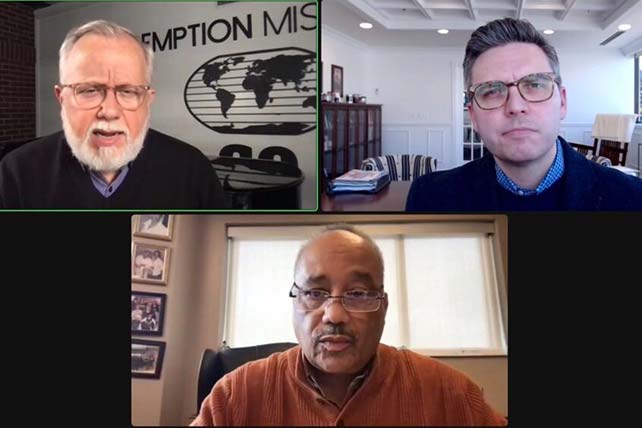Thursday’s webcast was held only two days after a Lifeway Research survey showed 49 percent of American churchgoers say their church needs to become more ethnically diverse while, at the same time, 69 percent say their church is doing enough to be diverse. On Feb. 26, Racial Reconciliation Sunday will be observed on the SBC Calendar.
The Unify Project is the latest effort in the SBC to foster racial reconciliation in a convention of churches that was founded in 1845 to support the appointment of slave owners as missionaries.
Messengers to annual SBC meetings in recent decades have adopted multiple resolutions condemning racism and calling for racial reconciliation. In 1995, messengers approved a resolution on the SBC’s 150th anniversary in which they lamented and repudiated slavery, apologized to African Americans “for condoning and/or perpetuating individual and systemic racism in our lifetime” and asked for forgiveness from Black Christians.
The issue requires “hard conversations” and courage, the webcast audience was told.
Luter said a white friend who had invited him to preach to the church he pastored tearfully rescinded the invitation when some key leaders in the congregation told him a Black man would preach in that pulpit “over our dead body.”
“[W]hen you see something as obvious as this, you have to address it on some level,” Litton said of the reaction within that church. “It takes wisdom, but it also takes courage.”
While Litton said he has “paid a price” in leading his church on the issue, he added, “And yet at the same time, I think what it does is it raises up an expectation among the people that we are serious about this Gospel, that we are serious about demonstrating love one for another.”
Litton acknowledged it is “not easy to change” people for whom racial bigotry was a part of their upbringing and culture.
“The goal is to keep people focused on the Gospel,” he said. “[W]hen we put … things that we think are culturally important above the Gospel, somebody has got to call us to task for that.”
Leatherwood asked both pastors for their response to those who say America has moved past the racial divide or contend the issue is a product of Marxist ideology or critical race theory (CRT).
“We would never be able to progress to the future if we ignore the past,” Luter told the webcast audience.
“We cannot be afraid to talk about and deal with the issue of race and racial division. Of course, it happened in the past, but it’s alive and well in 2023 in America.”
The diverse, Mobile-area pastors and leaders who had already been gathering regularly were unfamiliar with CRT when Litton returned from the 2019 SBC meeting in Birmingham, Ala., he said. Messengers passed a resolution regarding CRT at that convention.
CRT “was so foreign to us,” Litton said. “And so what’s important to understand is that’s a thing, but our thing is the Gospel.
“And what you read completely in the Word of God and constantly is that the church is to be unified.”
A video of the webcast will be released at a later date.
This article originally appeared at Baptist Press.

